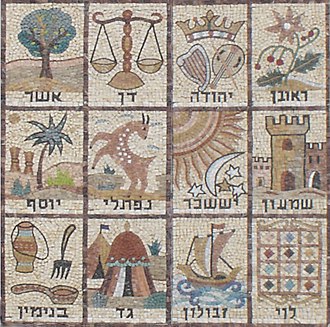
Twelve Tribes of Israel
Gematria Values
The Twelve Tribes refer to the twelve sons of the biblical patriarch Jacob, who became the ancestors of the Israelites. In Hebrew, they are known as שבטים שלשת-עשרה (Shevatim Shloshah-Asar). The tribes are traditionally associated with the twelve sons of Jacob: Reuben, Simeon, Levi, Judah, Dan, Naphtali, Gad, Asher, Issachar, Zebulun, Joseph, and Benjamin. The tribe of Joseph was later divided into two tribes, Ephraim and Manasseh, representing Joseph's two sons, thus maintaining the total of twelve tribes. These tribes played a central role in the biblical narrative, particularly in the books of Exodus, Numbers, and Joshua, where they are described as forming a confederation during the period of the Israelite settlement in Canaan. The concept of the Twelve Tribes is also significant in Jewish tradition and has been adopted in various forms by other religious and cultural groups throughout history.
Wikipedia Information
